Top 10 Hardest Instruments to Play
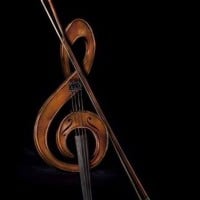 The violin is a wooden string instrument in the violin family. It is the smallest and highest-pitched instrument in the family in regular use.
The violin is a wooden string instrument in the violin family. It is the smallest and highest-pitched instrument in the family in regular use. This is the most physically uncomfortable instrument to play. I am very impressed by how people can play the violin. I played piano for a long time, and then in middle school, I started playing the viola. I gave up on it after two years because of COVID, and also because it was extremely difficult to play, especially during virtual school.
I have picked up guitar recently and, in my opinion, it is way easier to play than something like the violin or piano. In guitar, it is easier to improvise by shredding on some pentatonic positions and to learn songs. With piano, it takes a lot more dedication to learn songs because you are playing with two hands. Chords and scales on the piano have different positions, no matter if it's major or minor.
Even then, the violin is still more difficult to play because of the unmarked notes and extreme finger positions you put yourself through.
 The piano is a musical instrument played using a keyboard, which is a row of keys that the performer presses down or strikes with the fingers and thumbs of both hands.
The piano is a musical instrument played using a keyboard, which is a row of keys that the performer presses down or strikes with the fingers and thumbs of both hands. I have been playing piano since I was five, and I am currently in sixth grade. I've had a "quote-unquote" graduation from my initial learning stages, mastering my book series, music theory, and advanced piano techniques. I then moved on to college-level music, mastered that as well, and now I play pieces by Mozart, Bach, Beethoven, and many other composers. I am able to look at a piece of music and play it relatively easily, or hear something and play it by ear.
So how did I get this far? The answer is practice!
I practiced for at least an hour every day. Piano came naturally to me because of the number of hours I invested in it. Just for context, my lessons were once a week for 30 minutes. The key to mastering this instrument is practice!
Playing the piano is an interesting experience. One of my favorites, Beethoven's original Moonlight Sonata (First Movement), required a lot of finger stretching. Yet, the more I practiced, the more flexible my fingers became. Before I knew it, playing became easy for me, and I felt like I was flying across the keyboard. It's as if your feet are keeping the 6/8 time signature and maintaining a steady pace between measures, while your left hand leaps to play complex chords and your right hand tackles a variety of patterns.
Piano is also mentally challenging due to the complex coordination required between different body parts.
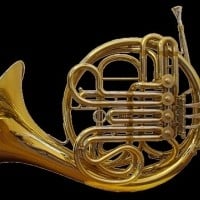
The French horn is definitely the hardest instrument to play. You can play practically every note without any keys down. The partials are extremely close together. A high F and a high G, notes right next to each other, have the same fingering, which means you have to use your mouth to move between them. This brings us to the lip trill, which is awful.
My student teacher said it best: horn players have to have an ego. If you're the least bit unconfident, you will crack on just about every single note. If you have confidence, you won't crack. You also have to hear the note before you play it, or it will be the wrong note or partial.
Additionally, the horn has the tiniest mouthpiece ever, which is smaller than a bottle's opening. The horn also plays a lot of the woodwind stuff, like trills and running sixteenth notes and thirty-second notes, which most of the time have to be tongued by double or triple tonguing.
Moreover, the fingerings for notes in different octaves aren't the same, and we have about seven octaves of range. You have to practice for hours on end, for years on end, to get a good warm sound. But when you do, all the effort is totally worth it. However, it becomes very difficult not to overplay and blare since it is a naturally loud instrument.
Also, the hand in the bell can just get annoying sometimes, although it can also save your butt. The horn probably also has the most jumping notes, where it's just a random high note followed by a random low note, since it's an awkward instrument to put a tune to.
 Oboes belong to the classification of double reed woodwind instruments. Oboes are usually made of wood, but there are also oboes made of synthetic materials.
Oboes belong to the classification of double reed woodwind instruments. Oboes are usually made of wood, but there are also oboes made of synthetic materials. I feel like this vote is off and too biased. Not everyone has played all of the instruments listed here, so they wouldn't know what to judge. They would only pick their own instrument, believing it to be the most difficult simply because it might be the only one they've played. I've played the oboe, flute, clarinet, as well as the piano. I have been playing the oboe the longest and still currently play it. I have to agree that the oboe has been the hardest instrument, especially to start out with.
Even after playing for five years and practicing daily, it is still very difficult. Reeds are always an issue. The $12 reeds you buy at your local music store just don't do justice. Most beginning players don't know this and will continue to buy those subpar reeds. A few venture online to look at custom-made reeds, which is what I did. I tried several online reed makers, with prices usually ranging from $15 to $25 per reed. I never found any of them to be even decent. They'll make the first few good ones to get your business, then the quality deteriorates.
I eventually settled on another reed maker, charging $35 per reed, and I've always been satisfied. That's right, $35 per reed! Reeds last about two to three weeks or around 10 hours of playing time. They are extremely finicky. They change every day depending on the weather and the environment you're in. The openings are only a few millimeters wide, and when you make them, they're crafted from thin pieces of special cane. Furthermore, the cane on reeds is measured in nanometers, not millimeters!
I'm not biased. I've consulted with several band directors at the high school, college, and professional levels. A majority have agreed that the oboe is the hardest instrument, while only two or three have said it's the French horn. They have also mentioned that they almost never have a good oboe player and that they often sound poor.
 The flute is a family of musical instruments in the woodwind group. Unlike woodwind instruments with reeds, a flute is an aerophone or reedless wind instrument that produces its sound from the flow of air across an opening.
The flute is a family of musical instruments in the woodwind group. Unlike woodwind instruments with reeds, a flute is an aerophone or reedless wind instrument that produces its sound from the flow of air across an opening. The flute is by far the hardest instrument to play. Don't say it's easy. It's not. I'm in grade 6 and have played the flute for almost two years now. I am in the first chair and considered extremely gifted. However, you have to work your butt off to play it well.
The trumpet section in the band says, "Oh, it must be so easy," but they're wrong. I bet the trumpets would pass out after playing one song, that is, if they can even get a sound out of it. You have to deal with a dizzy feeling. It requires a lot of talent, hard work, practice, and determination.
I stay after school for an hour and a half every Tuesday so I can practice. Then, when I get home, I practice for two hours. Every day, I practice for two hours at home. I finish lunch early and then spend 15 minutes in the band room practicing. Believe me, it's very hard.
But I love playing it because it's an escape from reality. It feels good, even if you are dizzy. You feel tired yet energized. I want to be a flutist someday. And if you do too, you and I should be very appreciated for our hard work. Don't give up.
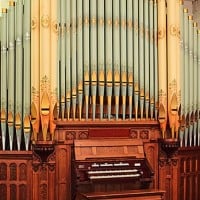
I totally agree. I've played the piano for as long as I can remember, and it's a very intricate instrument to learn and play well. You're constantly juggling different melodies, harmonies, rhythms, and other multiple voices that often go unnoticed by most listeners. It feels as if I'm my own band or choir condensed into one person.
I can honestly say I've never had the chance to play the organ. But adding extra keyboards and having to play even more notes with your feet? I admire you organ players, and I hope to be able to play this powerful instrument someday!
 Bagpipes are a wind instrument using enclosed reeds fed from a constant reservoir of air in the form of a bag.
Bagpipes are a wind instrument using enclosed reeds fed from a constant reservoir of air in the form of a bag. I think it's telling that obscure instruments, such as the bagpipes and oboe, end up on this list.
I wouldn't say the pipes are the hardest. With good instruction and the obligatory practice, it is possible to become a very competent piper in a few years. The pipes only have nine notes, and there are no dynamics or rests, so in a way, they are a very simple instrument to play.
However, the pipes are incredibly hard to break into. They're not like a trumpet, clarinet, or piano, where you can play simple beginner tunes full of minims and crotchets. You're straight onto quavers and semi-quavers. Even slow tunes like Amazing Grace have short notes. This is made worse because pipes don't handle crossed notes well at all. So, fingering has to be perfect from the start. Because there are only nine notes, pipe music is decorated with embellishments - groups of up to six grace notes played very rapidly one after another. They require skill and precision to play properly.
Then there's the issue of blowing, air pressure, and tuning. The pipes have to be kept at a very constant pressure. Otherwise, they will be out of tune. This requires a lot of lung, lip, and arm strength, as well as endurance and coordination. Despite all this, the pipes are very temperamental with tuning anyway. Individual notes on the chanter fall in and out of tune and have to be adjusted by wrapping tape over the holes. Additionally, the drones often need readjusting.
Once you get this stuff sorted, it is easy to play very nice pipe music without mastering the instrument. But few people have the patience and discipline to make it to this point.
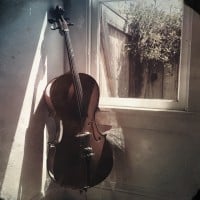 The cello or violoncello is a bowed or plucked string instrument with four strings tuned in perfect fifths.
The cello or violoncello is a bowed or plucked string instrument with four strings tuned in perfect fifths. Playing the cello is hard, but it has a rich, pleasing sound. Each instrument has its own challenges, but the cello presents two major difficulties that combine to create a very hard technique to master: playing the right notes in tune while holding it in an upright position against your front while sitting down.
This requires a special form of hand and arm positioning that can't be fully extended, unlike with the violin or viola, and can't be fully bent, unlike the bass. The cello also requires a bow stroke that extends your arm at a 90-degree angle but folds in like a wing while coming down.
I've played all the string instruments as a symphony conductor, and I think the cello is the hardest of all. I majored in oboe, though, and found that other than basic techniques and sound enhancement, there wasn't much to it. The violin requires a lot more technical effort that takes a while to master, and the cello even more so than the violin.
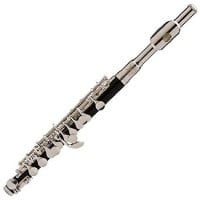
I play the flute, but I plan on playing the piccolo as well in ninth grade. My mom played the piccolo. She told me how difficult it was. I've met people who play the piccolo, and my best friend from band camp told me the same. I won't argue that the flute is harder. I've had the opportunity to play the piccolo once, and it is difficult.
To all piccolo players, I appreciate your hard work. I adore the sound of your instrument and was honored to play it for five minutes last summer. Yes, it should be rated above the flute. You are all amazing and often overlooked. When I tried out the piccolo, the small keys weren't a problem. In fact, I liked them because I have small hands. I had to use a thinner airstream and about twice as much air as when playing the flute. Kudos to you for staying strong when playing such a challenging instrument!
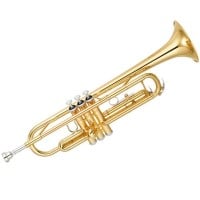 A trumpet is a blown musical instrument commonly used in classical and jazz ensembles. The trumpet group contains the instruments with the highest register in the brass family.
A trumpet is a blown musical instrument commonly used in classical and jazz ensembles. The trumpet group contains the instruments with the highest register in the brass family. Wow, I'm stunned. I thought the trumpet would be up there as the number one hardest instrument. I have played and performed on several instruments in my life: accordion, piano, drums, guitar, bass. None of them has been as challenging as the trumpet, which I recently started about three months ago just to see how far I could go with it. With my musical background, I was able to pick up the mandolin and violin, and within three to five months, I was able to play something for people and entertain in a professional situation, focusing on fiddle tunes rather than classical pieces. However, acquiring a usable range and stamina to play something performance-worthy as a solo on the trumpet is, as far as I can see at this time, a long way off for me - perhaps years.
I guess I agree that the violin and piano are probably the hardest at an advanced classical level. But the trumpet is the hardest from the get-go - just to produce a pleasing sound! It's not an instrument you can pick up and start jamming on within a few months, at least not for me. It makes sense to me now that they start kids off on the trumpet at an early age when they are not as result-oriented as we become when we are adults.
 The electric guitar is a type of guitar that unlike an acoustic guitar, is solid body instead of hollow. They use pickups and amps to produce sound that's audible from more than a few feet. They are mainly used in rock and metal music and in those genres are commonly the main instruments. A few notable... read more
The electric guitar is a type of guitar that unlike an acoustic guitar, is solid body instead of hollow. They use pickups and amps to produce sound that's audible from more than a few feet. They are mainly used in rock and metal music and in those genres are commonly the main instruments. A few notable... read more While I agree that a piano might be one of the hardest instruments to master, the guitar requires you to manipulate strings to produce notes. A guitar is harder than most string instruments because it has six strings, whereas most others have only four. I don't think hitting notes with precision, as on a violin, really counts as being hard to do. Once you get good at any instrument, you should be able to hit a note perfectly without thinking about it.
With a guitar, it might not be as noticeable when hitting a note slightly off, but anyone who's any good considers this unacceptable. The violin has a small neck, making it easier to play faster. So, anyone who thinks that needing to play fast is a valid argument is wrong. Some of the best guitarists play just as fast and have to move a longer distance across the neck and stretch their fingers farther. Guitars have all the same elements, like vibratos.
Most of the people who are voting for the violin seem to know nothing about the guitar and just think that because it's an instrument they play, it should be deemed hardest. I have played a violin before. Picking with a guitar can also be challenging because most of the time you're only strumming halfway down the strings and have to stop perfectly in between strings. If you're strumming correctly, this should be pretty difficult because the pick slides almost effortlessly across the notes, making it incredibly difficult to stop mid-strum.
If you had to manipulate the notes on a piano, it would be hands-down the hardest of instruments to play. I definitely think the piano is a very close second, if not equivalent.
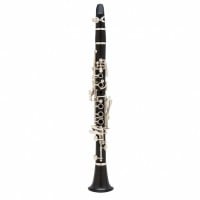
I've been playing the clarinet for 5 years now, and it's pretty difficult because you need to find a good reed, you need a lot of air, and you have to be able to articulate notes, change dynamics, and much more. It's a complicated instrument and definitely not easy.
It kind of annoys me that the clarinet is so low on the list of hard instruments to play. Apparently, the violin is the hardest to play, which I don't believe, but I wouldn't know because I only play the clarinet. I also think the clarinet is harder to play than the piano. To play a note on the clarinet, you have to blow hard enough, hold the clarinet correctly, position your mouth properly, and do much more. In contrast, for the piano, all you have to do is push a key. Sorry for my rant.
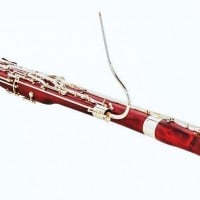
Bassoons are by far the most difficult instrument to play. Very few people play the bassoon, and finding teachers or help at all is almost impossible unless you live near a university or a big city with an orchestra. And unlike other instruments (except oboe and bagpipes), we have to make our own reeds specialized to our instrument! Buying reeds is also expensive, ranging from $10-40. The tools to make reeds can cost up to $400.
Oh, and don't forget that there are many different fingerings for each note! F-sharp has 17 different fingerings. You have sensitivity points on the reed depending on whether it's a low, middle, or high-range note. Once you get past second-octave G, you start using "flick keys" that you play with your left thumb. That's 9 keys for one thumb to continually flick for each note. There is no octave key. A bassoonist has to learn specific flick keys, thumb keys, and half-hole patterns to jump octaves.
All bassoons are handmade and therefore have different quirks depending on the brand you buy, since there is no universal bassoon set and make. All I'm getting at here is that bassoons are a beast to play and conquer. I recommend it for all.
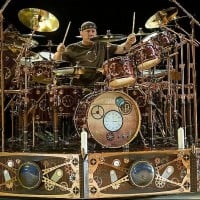
As a 50-year-old terrible guitarist, I started playing drums about a year ago because it has been relatively easy for me to keep time in my head and on the guitar. I quickly found that I had a knack for the drums and immediately enjoyed playing them.
As I have progressed, it is clear to me how difficult the drums really are to play well. I agree with everything said here about how challenging it is to play drums. Although I have listened to thousands of songs over and over, now that I play drums, I can really appreciate the incredible skill of so many "professional" drummers. Even on types of music I hate.
That's another thing. On the guitar, I would not think about trying to play styles of music I don't care for, but that is not the case with drums.
I would recommend the drums to anyone with an interest in playing instruments. Yes, they are difficult and impossible to master, but compared to some other instruments, way more fun! Plus, it can be a very good workout!
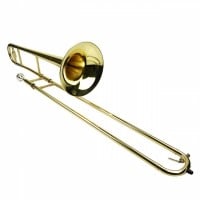
Honestly, it should be much higher than #14. The reason is that we can never really get it perfect all of the time. You have to constantly keep your ears in check with the band to see if you're really playing the right note. Sometimes we'll play just a little bit above position 3, or maybe just below position 6.
Keep in mind the things we have to do all at once while playing the trombone. We have to make the right buzz, tongue correctly, and may I mention that slurring is extremely hard? We must constantly be adjusting our slides and tuners, which requires quite a lot of air. After playing, I always find that my chest sometimes hurts, and my lips feel close to numb.
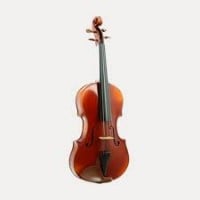
As a beginner violist, I still have a lot to learn, but I can tell you now it's NOT an easy ride! Violists often need bigger hands and fingers that can spread far, because playing the viola is pretty hard, and it has different strings than the violin. Violas also need more pressure applied to the strings than the violin, and especially the bows.
I held a cello bow and compared it to the viola bow, and it was super light! I was surprised because you'd think a cello bow would be heavier. I could be wrong, but I was shocked. I have absolutely nothing against violins or cellos, but I think the viola just might be a little harder than them.
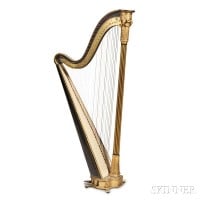 The harp is a stringed musical instrument that has a number of individual strings running at an angle to its soundboard; the strings are plucked with the fingers.
The harp is a stringed musical instrument that has a number of individual strings running at an angle to its soundboard; the strings are plucked with the fingers. The harp has all the complexity of a piano - two staves, multiple notes in both hands - but the additional plucking action really sets it apart from the piano. You have to be on the note and prepare before plucking. Then there are seven pedals, each with three positions to control the accidentals. However, you have to time them exactly right to avoid buzzing. If you're moving them quickly, you have to release them on the spring rather than placing them exactly where you need them to be.
You also have to build up callouses on your fingers by playing a lot, which is painful. Controlling the timbre of the strings is really hard too. I can hear how I want it to sound, but it's difficult to make it happen. There are 47 strings! Violins have 4! Why is the harp number 11 on the list? It's only because not many people play it and vote for it. It should be number 1! I played piano and oboe before starting the harp, but now I just play the harp because it's so challenging! (But good).
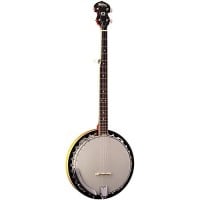
While I agree that other instruments may be harder to play, the 5-string banjo is definitely in the top 10. You have to memorize rolls and different ways to play the same chords, making it one of the hardest instruments to play. I have played bagpipes, harmonica, acoustic and electric guitar, and the bugle. I am convinced that the banjo is the hardest among these. If you mess up a note, it's impossible to hide because it's so noticeable. Therefore, you have to perfect hammer-ons, pull-offs, and bends, and essentially play flawlessly, all while making sure you're wearing your finger picks correctly.
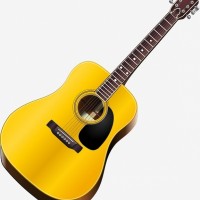
Although I believe the violin is the hardest instrument to learn - I've witnessed firsthand the difficulty in mastering the violin - I voted for classical guitar. I have abundant experience with different musical instruments. I have played the clarinet and recorder, but I did not find them all too difficult.
I study classical guitar and piano, and I can assert that, by far, the piano is much easier to play than the classical guitar. Playing Bach pieces on the classical guitar is much more difficult than when I attempt Bach on the piano. It takes much more effort to play, for instance, "Variations on a Theme of Handel" (Op. 107, Giuliani) on the guitar, as opposed to the ease of studying "The Harmonious Blacksmith" on the piano.
Classical guitar is difficult. I'm not talking about popular music or insipid chord-stroke music. The mistake people make when they assume that the "classical guitar is such an easy instrument to master" is that they think of the guitar used for mere chords and finger-picking pieces. This is a common mistake that, given the versatility of the guitar, is easy to make.

I haven't been playing the tuba for very long, but I did originally play the baritone/euphonium. The tuba requires a lot of air and greater focus on tonguing. As someone with asthma, it's a bit more challenging for me to play the instrument.
The tuba is more difficult than people think. After playing it, sometimes I have to make sure I don't pass out. Although it is similar to the baritone, there are notable differences. The tuba has many more notes and partials than a baritone. Mastering these partials, especially the high notes, is challenging, but the low notes can be just as difficult.
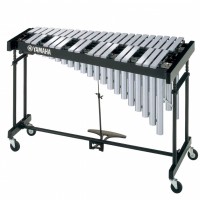
Definitely, mallet percussion is not easy. Your hands do not touch the instrument directly, and there's a lot of horizontal movement involved. The parts are positioned far away from you, and your eyes have to focus simultaneously on the keyboard, the music, and the conductor. It requires advanced drumming skills, plus the ability to improvise, understand harmony, and play notes.
When you play the saxophone, you don't need to look at your fingers. You can just look at the sheet music and play one note at a time. You can feel the instrument with your fingers. However, the saxophone has its own set of challenges. Like any other instrument, it is difficult in its own way. There are no easy instruments out there. Just keep playing and spend hours enjoying it. Don't worry about the outcomes. They will come. That's the secret.
Play and play and enjoy it. If you can take a sabbatical for a year, take your instrument and play it all day for 4 to 6, or even 12 hours a day. Even just fooling around with it, you will learn. The more time you spend on the instrument, the better it is. But it does not get easier. As you become able to play things you couldn't imagine a year ago, you'll crave to play more difficult pieces. You continuously raise the bar, and that's how you improve.
I plan on playing quad drums for my high school band. From what I see, it doesn't look like it's all fun and games. I was expecting quads to be higher up there.
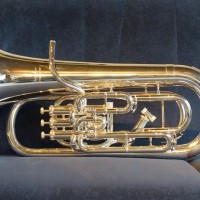
Ha! Jesus Christ, this is the hardest instrument I have written for and seen written for. I've written in five clefs for the euphonium (not including treble transposing down a major ninth), and I've seen a piece call for the widest octave jumps: a B0 to F5, or a four-and-a-half-octave jump. That's the entire harmonic series skipped in one jump. I haven't even seen a piano go that wide on an octave jump.
I don't remember who wrote the piece, but whoever attempts to play it is in for a challenge. Despite its difficulty, it's a very mellow instrument. Also, don't refer to the horn that a euphist is holding as a "baritone," or you'll find a sousaphone bell in your face very soon. I say this from experience.
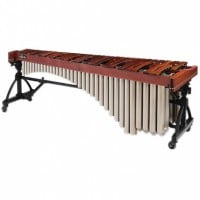
This should be in the top 2! Mallet percussion instruments take so much talent to play. Take piano music and make it more difficult. Playing with two mallets is hard enough on any of these mallet percussion instruments, except for the tubular bells/chimes. Other times, you have to play with four mallets, and occasionally with six! I don't see any reason for players of any other instrument to complain that it's hard. These mallet percussion instruments take the cake.
I've played for four years, and I can play with four mallets, but it's still very hard. Now, if you ask me to play 8th notes at a tempo of 200, I'll be pretty good at it. If you make me play with four mallets, I'll struggle, and playing with six mallets is just plain insane! I've seen few songs that require three mallets in either hand, but I'll tell you, they look almost impossible to play.